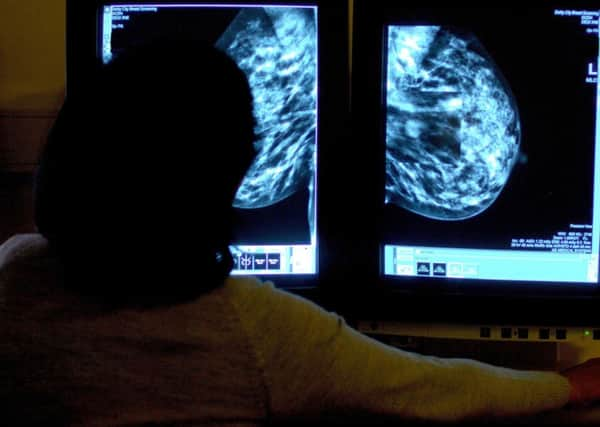Sarah Todd: Breast screening and other scandals. It just doesn't compute to leave lives in digital hands


Health Secretary Jeremy Hunt this week told the Commons that a “computer algorithm failure” had led to a breast cancer screening error affecting 450,000 women.
First things first. What the heck is an algorithm? And more importantly, how has our great nation got to the sorry state of relying on one (the dictionary declares it’s a set of rules to be followed in calculations, especially by a computer) for call-ups to such important health screening?
Advertisement
Hide AdAdvertisement
Hide AdJust the other week millions of TSB customers were locked out of their accounts after a planned computer system upgrade led to an online banking outrage.
Wales NHS couldn’t access patient files back in the New Year because of computer failure, following-on from the large ransomware attack on NHS England, which almost brought the health service to its knees in May last year.
In the same month, British Airways faced a massive global IT failure which led to the airline cancelling all flights from Heathrow and Gatwick. The list goes on, but the sorry state of affairs is already clear.
All this before we even start to worry about Russia and other international threats. Following the Salisbury chemical attack, banks, energy and water companies have been on maximum alert over the threat of a serious cyber-attack from Moscow. The UK’s financial sector, intelligence agency GCHQ, and security services MI5 and MI6 have also been feeling the scary shadow of vulnerability.
Advertisement
Hide AdAdvertisement
Hide AdGetting red-headed and listing all the above is no good for the almost half a million women, aged 68 to 71, who were not invited for their mammogram screening. The estimate is that between 135 and 270 women had their lives shortened by what Mr Hunt refers to as the “serious failure” in the system.
Five years too young to be offered breast screening, which seems wrong when people can get their chests and many parts of their bodies cosmetically enhanced on the NHS, this particular summons has yet to fall through our letterbox.
Among the bills, bank statements and PPI claim forms, there are routine call-ups from the doctor’s surgery or hospital.They are always treated with respect. We lead quite a disorganised life (just the other day nine hens and three cockerels were taken by the fox) but anything that the NHS sends is treated with respect rather than being bunged into the ever-expanding pile of papers on the kitchen table. It’s this respect – and trust – that the NHS has so threatened with this debacle.
With a lot of health screening, there’s a sense of putting oneself on the line. All of us must surely be guilty of imagining the worst possible outcome beforehand, but then we leave ourselves absolutely and utterly in the hands of the health professionals. They tell us they will be in touch if there are any problems and we trust them. There are bound to be those who will not now get involved in health screening programmes. Their trust will have gone.
Advertisement
Hide AdAdvertisement
Hide AdMany a miserable receptionist and jobsworth administrator has hidden behind the excuse of computer problems. While it’s ridiculous to suggest a return to the old paper filing cards that contained the medical records of this correspondent’s youth, there must surely be a happy medium. Somebody, somewhere, should have noticed the drop in women coming forward for screening. Then maybe, just maybe, if a human had been involved alarm bells could have been rung earlier.
It’s easy to ask why the women themselves didn’t question the fact they’d not been called in for their final mammogram? This takes me back to the aforementioned NHS staff. Tapping away at computer screens, they can be very intimidating – especially for the ladies of older age affected by this scandal – to approach. It’s become too easy for staff to say something is being dealt with by a computer system and make telephone callers feel stupid for enquiring.
Just recently The Husband had some tests at the local doctor’s surgery and he never rang for the results. He had absolute and utter faith that if there was anything wrong they would give him a call. At least two months later – in there to collect a prescription for the children – the receptionist (this one is kind and friendly) explained that no, the onus is on the patient to call for results. The wife couldn’t be told the outcome, so he’d have to ring in. He did, in true male fashion about a week later, and has had to have some more tests. It was silly of him not to telephone in, but it does illustrate the confusion surrounding communication with the NHS. There is a generation that still believes no news is good news.
The late US President John F Kennedy perhaps showed remarkable foresight when he declared: “Man is still the most extraordinary computer of all.”
Sarah Todd is a former editor of Yorkshire Life magazine. She is a farmer’s daughter, mother and journalist specialising in country life.